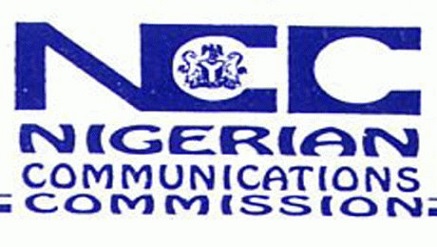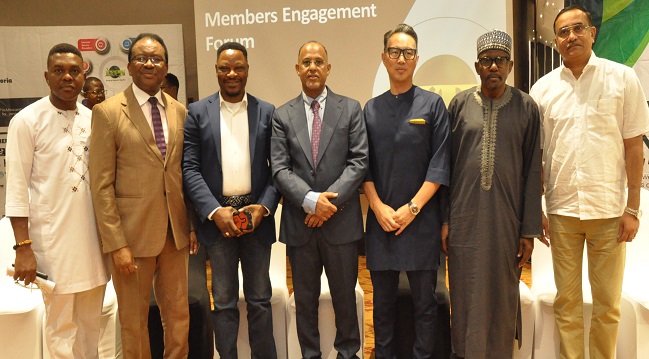Telecom
Nigeria Plans Big for ITU Telecom World 2016

Small and Medium Enterprises (SMEs) innovators, industry players and stakeholders are among the large number of delegates to the International Telecommunications Union (ITU) Telecom World 2016.
The event which is due to hold in Bangkok, Thailand from November 14 – 17, 2016 will provide participants the opportunity to network, showcase their innovations and tap new business models in the Information and Communications Technology (ICT) Terrain.
Participants will explore importance of collaboration in the digital economy through best approaches, business models and technologies to forge flourishing inclusive ecosystem.
Nigeria has adopted a theme: “Smart Communities: the key to a digital Nigeria”.
This theme according to Mr. Tony Ojobo, director, Public Affairs, of Nigerian Communications Commission (NCC), underscores the importance Nigeria attaches to the ITU Telecom World 2016.
The general theme for ITU Telecom World 2016 is “ Collaboration in the Digital Economy” and this will signpost collaborative regulation, the connected car, smart sustainable cities, fostering SME innovation, new roles for the satellite industry and digital financial services.
This year’s theme will feature compelling formats ranging from top-level CEO/Ministerial round tables to frank, open dialogues between governments and small and medium business leaders and interactive panel debates.
Ojobo explained that Nigerian industry players, regulator, NCC, satellite player, Nigerian Communications Satellite (NIGCOMSAT), e-government service provider, Galaxy Backbone, the postal sector led by NIPOST and Nigerian Information Technology Development Agency (NITDA) will have the opportunity to participate in sessions that will bring together expert Speakers and an influential global audience drawn from governments, key ICT players, International organisations, high growth SMEs, Consultants, Academia, the media among others.
A leadership summit of global leaders from public and private sectors will open the forum with an exploration of why working together is critical for growth in the digital economy and how it can best be achieved.
Some topics lined up for discussions include:
New approaches to connectivity: re-imagining the satellite industry: how demand for always-on connectivity is leading to innovative connectivity solutions, new players and new markets for the satellite industry
The connected car: freeway to the future or highway to hell?: exploring the status and future of vehicle communications and automated driving from the perspectives of business, technology, and regulation
Creating inclusive ICT innovation ecosystems: targeted business-to-government dialogue exploring concrete measures to foster innovation in SMEs for job creation and socio-economic growth
Smart approaches to smart sustainable cities: the economic and political challenges of delivering the promise of smart homes, streets, cities and regions
Making money from meeting the SDGs: a business approach to sustainable development: how the ICT sector can develop feasible business models to accelerate the achievement of the UN Sustainable Development Goals (SDGs)
B2B and B2G dialogues: exploring how corporations and governments can strengthen collaboration with SMEs to improve the outcomes of research and development, accelerate innovation and improve public services
Spotlight on Thailand: focusing on regional and local challenges, including dedicated sessions on Thailand’s ICT priorities and entrepreneurs, featuring Thai industry experts. These sessions will be highly beneficial to local and regional audiences
ITU-wide agenda: providing perspectives from across ITU and its membership and partners, co-located events include the ITU Kaleidoscope academic conference 2016; the World Standards Cooperation Academic Roundtable; a global CTO meeting; the 7th Private Sector Chief Regulatory Officers (CRO) meeting and ITU Academia Consultations.
Telecom
IXPN Positions as the Regional Internet Exchange Hub for West Africa

Internet Exchange Point of Nigeria is positioning as a regional Internet Exchange hub for West Africa in terms of infrastructure and traffic. Muhammed Rudman, chief executive officer, IXPN, stated this at its 2026 members engagement forum held in Lagos. He noted some of the major milestone IXPN achieved last year to include one terabit of traffic recorded in March 2025.

“At that time, we became the 63rd internet exchange point in the world. Among all the exchanges in Europe and America and in the entire world, we become the number 63 in the world. To achieve that one terabit of traffic. Again, we were able to achieve two terabits of traffic within seven, eight months of the year.
“We achieve this by ensuring that we push for members to upgrade, those that were on 1 Gig to 10 Gig, those on 10 Gig to 100 Gig. We had a strategic infrastructure upgrade across our networks, put 400 Gig enable switches, increase our fiber links to all the data centers and we onboarded 17 new members last year. All the trainings and the operational excellence ensured that our network is up and running 24/7,” he said.
Industry Impact
The impact of that one terabit traffic is data sovereignty. “We were able to domesticate. Based on the survey we conducted, 54% of our members said that they are exchanging 50% of their traffic and above locally, which is really, significant one.
“We are also setting up a benchmark for other African IXPs. I can assure you that in all the community driven internet exchange points in Africa, we are the number one. There’s a community driven internet exchange point in South Africa that was established 10 years before IXPN. There is one in Kenya that was established 6 years before IXPN, but we are way ahead of them when it comes to internet traffic.
“We are also promoting intra African connectivity. As at today, we have customers from Niger, from, Burkina Faso, trying to reach to Nigeria. Recently, we onboarded a very large company in Ivory Coast, to connect to Nigeria.
“Gradually, Nigeria is tilting towards becoming the regional hub for West Africa, where you see Internet Service Providers coming to achieve that. And in terms of the traffic, in 2015 we were at four Gigabits per second. It moves to 21 in 2017 and 52 gigabits per second.
“But by the year 2023 it has reached 540 gigabits. By 2024 we have reached 900 gigabits. But by the end of 2025 we have achieved the two terabits of traffic”.
Network Infrastructure Development
Some of the technical feet IXPN achieved includes, deployment of sFlow; which is a peer to peer traffic analysis. “We’re able to see what members are exchanging between themselves and between the data centers, not the actual content or information, but rather the volume of traffic, and also between our data centers. And based on this, we’re able to do the upgrades.
“We did a multiple link upgrades from 300 Gigabits last year from Digital Realty to Equinix. It was 300 Gig as at the end of 2024, and by 2025, we’ve increased that to 500 gigabits per second. Digital Realty to Rack Center, it was 200 Gigabits per second. We also upgraded that to 500 Gigabits per second.
Open Access Data Centre to Equinix. We’ve upgraded from 20 Gigabits per second to 200 Gigabits per second. We always monitor the ports, and based on that, we increase immediately we reach the threshold of 80%.
“We did an upgrade on the IXP manager. This allows each member to have a login portal to see the traffic they are exchanging and other details, the port as well as to do their own configuration,” he added.
Technical Project Milestones
Microsoft connected cache. “We deployed Microsoft content cache and that has been deployed in Lagos. It was 25 Gigabits per second as of 2024 by 2025 we had to upgrade the infrastructure to 75 Gigabits per second servers, that will be able to accommodate all the Microsoft updates they are doing, exports, download and among others.
“This is part of the content that Microsoft is not providing locally, but we got those servers deployed, and our intention is by next year to see how we can replicate this across the country. Last year, we also deployed the same server in Abuja so that the Abuja people and the Kano people can reach that content without coming back to Lagos.
The Google Global Cache (GGC); “We are hosting all these at IXPN. We also upgraded from 53 Gigabits per second servers in 2024 to 153 Gigabits per second. And this is a huge traffic of YouTube. And as we speak, we are also working towards upgrading those servers,” he explained.
Strategic Partnerships
“We signed an MoU last year between us and an IXP in Senegal, when we went for West African peering forum. A lot of African ISPs are looking to us to see how we can guide them and support them.
“For example, internet exchange point from Gabon, internet exchange point from Rwanda and ISPs in Africa are looking at us as a model to copy, and we tend to support them. We also had a strategic partnership with CIRA, the Canada Internet Registry Association, which is similar to Nira, the Nigerian Internet Registration Association, to have their secondary authoritative servers into Nigeria as an anycast instance. And when they are hosting that, they are hosting other top-level domains as well, like alibaba.info.org.ca, are also hosted with us.
“Since they launched last year, we have seen a traffic of over 1000 DNS responses per second. Presently, there are 13 global root servers in the world, and those 13 servers are the ones that translate your IP address into a domain name. Any website you browse, you put a domain name, it translates into an IP address and its chain of referrals, Nigeria has.ng as a country, called Top Level Domain”.
Earlier in his welcome address, Charles Nmeregini, Business Development Manager, IXPN, said that the members engagement forum is more than an annual country. “Today, we pause to celebrate the milestone, the milestone that we have reached together, the milestone that have bolstered our local traffic exchange, reduce latency and significantly lower the cost of Internet access across the nations and beyond.
“However, today is equally about the horizon. It is a strategic moment as we unveil our 2026 service road map, a forward-looking rubbing designed to deepen interconnection, enhance service delivery and unlock new value across the ecosystem. In an era defined by rapid technological shift, standing still is not an option.
“This forum will spotlight exclusive, strategic business opportunities, new avenues for growth, enhanced pairing capabilities and innovative service model tailored to give your organization a competitive edge. We are not just exchanging data, we are exchanging ideas that will drive the next wave of Nigeria digital economy,” he added.
Telecom
Menxtt NG Emerges as Nigeria’s Virtual IT Hub for Premium Devices, Solutions

In today’s rapidly evolving digital landscape, having a trusted and reputable IT partner is no longer optional—it’s essential. Consumers and businesses alike face numerous challenges: buying smartphones, tablets, and laptops that are substandard or incompatible, worrying about device security, and struggling with costly repairs when gadgets break down.

Menxtt NG
This is where Menxtt NG stands out as a true industry leader, providing EU-specification devices, nationwide service, and unmatched support across Nigeria.
As an official BitDefender reseller, Menxtt NG ensures that every device comes fortified with premium cybersecurity solutions. This addresses one of the biggest issues consumers face today: digital threats. With Menxtt NG, customers don’t just get a gadget—they get peace of mind knowing their data and devices are protected.
Beyond security, the company solves a critical problem in tech ownership: the lack of reliable warranties and repair services. Many users find themselves forced to buy new devices due to broken phones, laptops, or tablets.
Menxtt NG addresses this by offering repair services for all major gadgets, saving customers significant money while extending the life of their devices. And for new devices, they provide fully tested EU-spec phones, laptops, and tablets with a 6-month warranty, ensuring both performance and durability.
Accessibility is another barrier Menxtt NG tackles head-on. With free nationwide delivery and a free charging cord included with purchases, they make premium technology available across Nigeria.
Their presence in Ola Ayeni Street, Computer Village, Ikeja, combined with easy contact via 08115919964, 08140902614, 0802 061 1299, 0802 893 1940, +234 916 642 2759, as well as online support at www.menxtt.com.ng and [email protected], ensures convenience for every customer.
Anthony Nwosu, CEO of Menxtt NG, highlights the company’s mission: to deliver top-quality, secure, and durable devices while providing accessible repair and support services.
This comprehensive approach addresses all the pain points consumers face—device quality, security, warranty, and after-sales care—making Menxtt NG more than just a retailer; it’s a reliable IT partner.
In a market flooded with subpar devices and unreliable service, Menxtt NG proves that choosing a reputable IT plug is crucial. With EU-spec devices, nationwide delivery, genuine warranties, and expert repair services, Menxtt NG doesn’t just sell technology—they empower customers to enjoy, protect, and maximize the life of their devices.
Telecom
Group Condemns Gabon’s Social Media Shutdown Amid Protests
Paradigm Initiative (PIN) has strongly condemned Gabon’s ongoing suspension of major social media platforms—Facebook, WhatsApp, Instagram, TikTok, and YouTube—ordered by the Haute Autorité de la Communication (HAAC) on February 17, 2026.

Social Media
NetBlocks and independent monitors confirm widespread disruptions persisting as of February 20, driving users to VPNs amid unstable nationwide connectivity.
PIN described the blanket shutdown as a grave breach of digital rights, including freedom of expression and access to information, silencing discourse during anti-government protests and a labour strike.
The digital rights group highlighted the absence of specific violation evidence, legal basis clarity, or restoration timeline from HAAC, rendering the measure disproportionate.
Gabon’s actions contravene Article 9 of its Constitution, the International Covenant on Civil and Political Rights (Article 19), and African Charter on Human and Peoples’ Rights (Article 9), failing international legality, necessity, and proportionality tests.
NetBlocks estimates a $2.96 million (FCFA 1.78 billion) Total Cost Impact over two days from WhatsApp, Facebook, Twitter, and YouTube outages, crippling entrepreneurs, small businesses, freelancers, journalists, and civil society reliant on these platforms.
The shutdown disrupts commerce, digital payments, customer engagement, and livelihoods—especially youth and informal sectors—in a nation with prior digital curbs during unrest.
PIN urged immediate full platform restoration, HAAC transparency on legal grounds and order details, and ISP notices detailing government directives.
ISPs and tech firms must uphold UN Guiding Principles on Business and Human Rights, ensuring transparency on connectivity orders and avoiding complicity in violations.
This pattern undermines Gabon’s transparency, civic participation, and democratic governance commitments.

 Telecom2 days ago
Telecom2 days agoBanks, Telcos Settle Four-Year Dispute over N300Bn USSD Debt

 E-Financial2 days ago
E-Financial2 days agoACAMB Educates Content Creator to Curb Misinformation on Bank Recapitalisation

 General News1 day ago
General News1 day agoHow JustMarkets Is Empowering African Traders with Global Market Access

 General News2 days ago
General News2 days agoPalmPay Unveils First Batch of Winners in #LoveWithPalmPay Campaign

 Telecom1 day ago
Telecom1 day agoGroup Condemns Gabon’s Social Media Shutdown Amid Protests

 E-Financial2 days ago
E-Financial2 days agoFirstCap MD says Payment Security Remains Biggest Barrier to Bankable Gas and Power Projects

 E-Business1 day ago
E-Business1 day agoMutual Benefits Assurance Settles ₦5.9bn Claims in January 2026

 General News2 days ago
General News2 days agoCourt Freezes MCSN Copyright Levies amid Record Label Legal Battle














